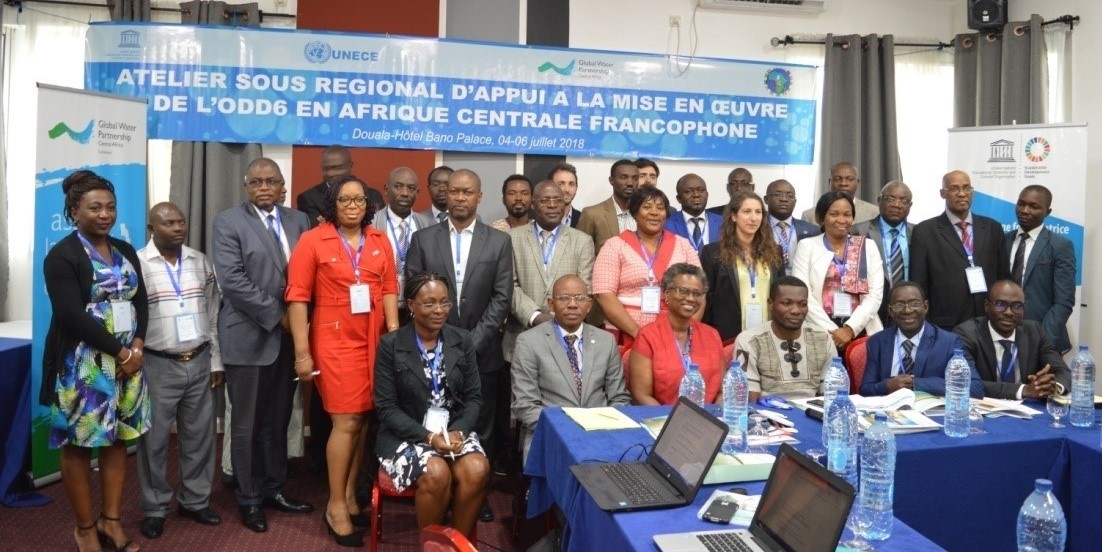The objectives of this meeting was to enable the countries of Central Africa to better understand the whole process of the SDGs, the deadlines linked to Agenda 2030 and to share the instruments of governance of water resources in Central Africa. For Mrs Ligia Barros, Chair of GWP-CAf, this workshop was for GWP "an opportunity for countries to better understand the process and methodology for monitoring Indicator 6.5.2 of SDG 6, and especially to identify ways to accelerate the implementation of target 6.5 of SDG 6, and facilitate integrated monitoring of SDG 6.
About 30 participants took part in this important meeting. Experts representing countries (Burundi, Cameroon, Congo, Chad, Gabon, CAR, DRC and CAR), basin organizations (CBLT, CICOS), development partners (BAD, UNDP), research institutions (University of Douala) and organizing institutions were present: UNESCO, the United Nations Economic Commission for Europe (UNECE), Global Water Partnership for Central Africa (GWP-CAF) and the Economic Community of Central African States (ECCAS).
According to Mr Daniel Claude WANG SONNE, representative of the Minister of Water and Energy, this workshop came at the right time to better help implement this indicator because "the development and management of water resources generally lack coordination between government services and the different sectors, which makes it difficult to provide information on indicator 6.5.2".
The three days of work were structured around expert presentations in plenary sessions, exchanges and groups of work. As a result of this work, recommendations were formulated for countries, transboundary basin organizations, ECCAS, and depository agencies, such as :
- Mobilize financial resources to support national teams in the intelligence process of monitoring reports (collection and analysis of information, organization of consultation workshops, etc.);
- Formalize the process for designating focal points and clarify the validation mechanism for the report;
- Further facilitate integrated monitoring of MDG 6 at national level, at least between indicators 6.5.1.
In general, most participants appreciated the relevance of the themes addressed and the pedagogical approach used. This workshop enabled the countries to understand the whole process, to better appropriate the instruments of governance of water resources in Central Africa, to share experiences and to contribute to the improvement of the methodology document step by step and the production process of the next monitoring report.
